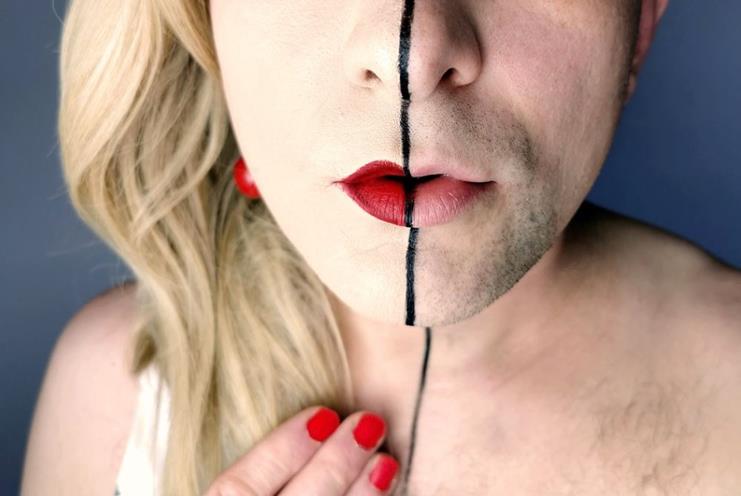The Impact of Feminization of Men and Masculinization of Women in Modern Society
The impact of feminization of men and masculinization of women is not new in the modern world. It refers to the increasing adoption of traits, behaviors, and attitudes traditionally associated with the opposite sex. While some argue that this trend reflects progress towards gender equality, others warn of its negative effects on individuals and society as a whole. From a psychotherapy perspective, this phenomenon presents significant challenges and risks that need to be addressed.
The feminization of men and masculinization of women can create confusion and conflict regarding gender identity. Gender identity refers to a person’s sense of being male or female, or something in between. As individuals adopt traits and behaviors traditionally associated with the opposite sex, they may experience confusion about their own gender identity. This confusion can lead to anxiety, depression, and other mental health problems. Psychotherapists often work with individuals struggling with their gender identity and help them explore their feelings and experiences in a supportive and non-judgmental environment.
Feminization of men and masculinization of women can perpetuate gender stereotypes and discrimination. Traditional gender roles and stereotypes have long been associated with power imbalances and discrimination against women. By adopting traits and behaviors traditionally associated with the opposite sex, individuals can perpetuate these stereotypes and discrimination. For example, women who adopt traditionally masculine traits may be seen as less feminine and less attractive, leading to discrimination and marginalization. Similarly, men who adopt traditionally feminine traits may be seen as weak and inferior, leading to discrimination and marginalization. This can lead to feelings of dissatisfaction, confusion and self-loathing, which can be resolved with psychotherapy.
Feminization of men and masculinization of women can affect relationships and social dynamics. As individuals adopt traits and behaviors traditionally associated with the opposite sex, they may have trouble connecting with others and forming healthy relationships. This can lead to feelings of isolation, loneliness and depression. Psychotherapists can help individuals explore their relationships and social dynamics and develop healthy coping strategies and communication skills.
Love addiction – Stop Chasing Love: Start Healing
The mentioned topic can affect mental health and well-being. Studies have shown that traditional gender roles and stereotypes can have a significant impact on mental health and well-being. By adopting traits and behaviors traditionally associated with the opposite sex, individuals are more likely to experience mental health problems such as anxiety, depression and eating disorders. Psychotherapists can help individuals address these issues and develop healthy coping strategies and self-care practices.
One of the primary concerns about this trend is the potential impact on mental health. Individuals who adopt traits and behaviors traditionally associated with the opposite sex may experience significant stress and anxiety due to societal pressures and expectations. They may also face discrimination and marginalization from others who do not understand or accept their choices. As a result, it is critical to address the mental health implications of this trend and provide support and resources to individuals who are struggling.
Another concern is the impact on relationships and social dynamics. Individuals who adopt traits and behaviors traditionally associated with the opposite sex may have difficulty connecting with others and forming healthy relationships. This can be particularly challenging for individuals seeking romantic partnerships, as traditional gender roles and expectations may still play a significant role in dating and courtship. Psychotherapists can help individuals explore their relationships and develop healthy communication and coping strategies to deal with these challenges.
Additionally, it is important to consider the impact of this trend on children and adolescents. As gender roles and expectations continue to evolve, children and adolescents may feel pressured to conform to societal norms and expectations regarding gender. This can lead to confusion and stress as they navigate their own gender identity and expression. It is important to provide resources and support for young people who may be struggling with these issues and to create safe and supportive environments in which they can explore their gender identity without fear of judgment or discrimination.
From a broader perspective, the feminization of men and masculinization of women may reflect a broader shift in societal values and expectations regarding gender. As individuals continue to challenge traditional gender roles and expectations, it is important to create space for diverse expressions of gender identity and to promote acceptance and understanding of all individuals regardless of their gender expression.

Keywords: Influence of feminization of men and masculinization of women, psychotherapy, Feminization of men and masculinization of women, psychotherapist Zagreb, Licensed therapist near me in Manhattan NYC, Affordable therapy services in New York State, Holistic psychotherapy sessions in NYC, Somatic Experiencing therapy for trauma recovery in New York City, NARM therapy in Brooklyn, Licensed couples therapy in Manhattan, Gestalt therapy near me in NYC, Marriage counseling in Queens NYC, Therapy for anxiety treatment in NYC, Experienced psychotherapist in New York, Licensed psychotherapist near me in NYC, Somatic Experiencing therapy sessions in New York, Trauma therapy and counseling in Manhattan, Gestalt therapy sessions in New York City, Therapy sessions for emotional regulation in New York, Trauma therapy near me in Brooklyn New York, Licensed mental health therapist in Manhattan NYC, Depression therapy in New York, New York City therapist experienced in PTSD treatment
*Photo: GettyImages
*Contact: Make an appointment
*For companies: Creative Director
Signs You Grew Up in a Dysfunctional Family








